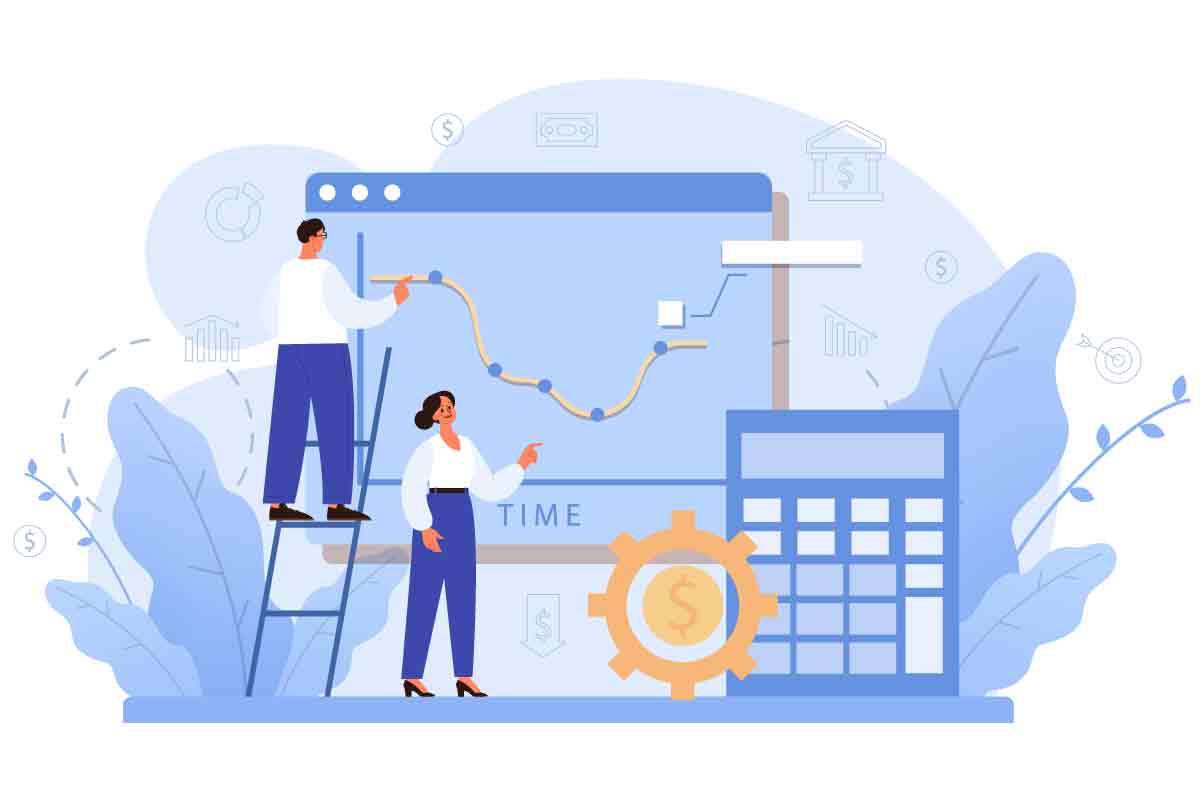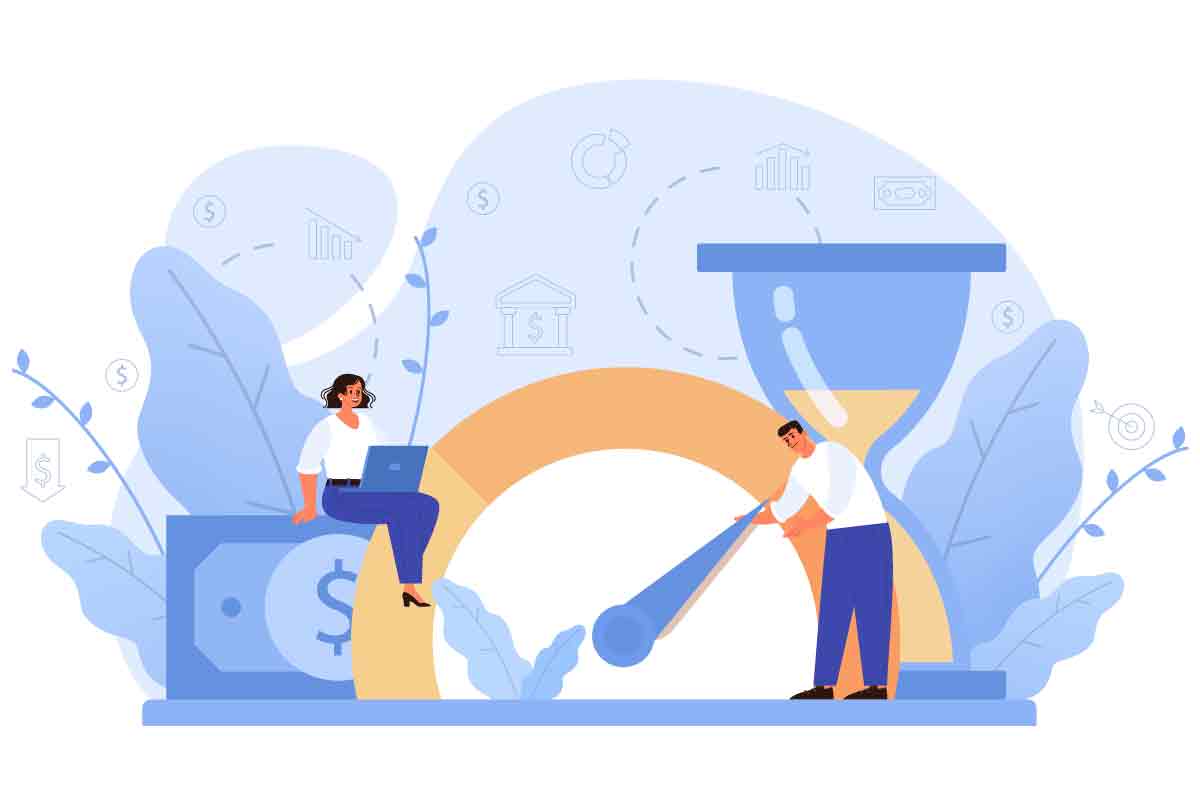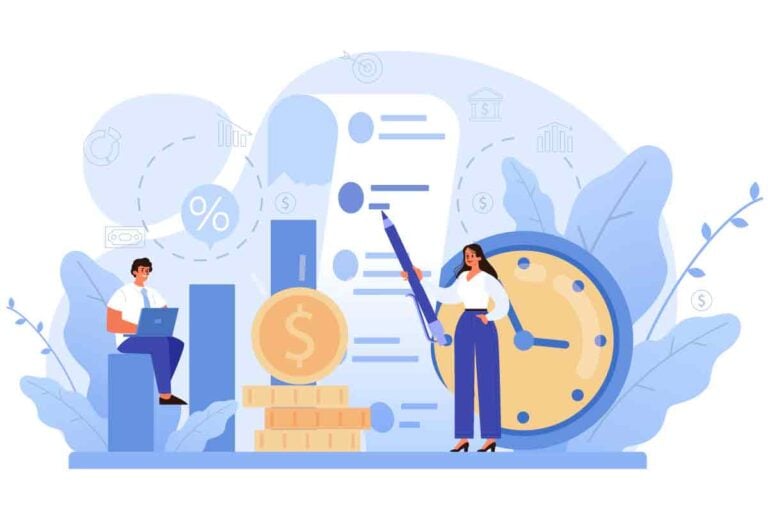How much should you budget for web development? How do you know whether to employ a developer in-house or outsource? What are the benefits of prioritising website development cost?
In this blog post, we’ll answer all of these questions and more. We’ll take a look at the average prices for different types of web development projects, and offer some top tips on how to make your project a success. So, whether you’re just starting out or you’re wondering how to upgrade your existing website, read on for everything you need to know about web development costs.
The benefits of allocating marketing budget to website development cost
Web development can be an invaluable investment for businesses of all sizes. By putting money into developing a website, you’ll build up your brand’s online presence and create a space through which to communicate with customers.
You’ll also be able to use the website as a platform for marketing strategies, such as search engine optimisation (SEO) and content marketing. SEO and content marketing can help to increase your website’s ranking on Google, meaning it will appear higher up in search results when potential customers are searching for related services.
And of course, the more traffic your website receives, the greater potential you have to grow your business.
For online-only businesses such as ecommerce websites, web development is even more important. By investing in a well-designed website, you can increase its usability and appeal to customers, leading to greater sales and profits.

How to spend web development budget – where is best to prioritise?
When deciding how to spend your web development budget, you’ll need to consider a few factors. What type of website do you need? Are there any special features that might require extra time or cost more money? And what kind of timeframe are you looking at for the project?
Your budget should also take into account maintenance costs, such as hosting fees, domain name registration and any additional plugins you might need for functionality. You’ll also need to factor in the cost of ongoing updates, or even the potential costs if something were to go wrong with the website.
List of additional web development costs:
| Type of cost | Indicative cost |
|---|---|
| Website design | $1000 |
| Build of initial website | $1500+ |
| Conversion rate optimisation | Budget around $500 a day for a CRO expert |
| Content development | Should have a dedicated ongoing budget, expect to spend at least $1000 per month to see the benefits |
| Hosting fees | As little as $3 per month, up to several thousand per month, depending on needs |
| Domain name registration | $10 per year |
| Plugins or add-ons | $100 – $500 per year |
| Ongoing updates and maintenance | See our separate guide to website maintenance |

Average prices compared – employing a developer vs outsourcing
The cost of developing a website can vary depending on the size and complexity of the project. Generally speaking, small businesses will pay anywhere from $1,500 to $8,000 for a basic website with around five or six pages. For larger websites with more complex features like e-commerce stores or customised designs, prices can range anywhere from $10,000 to over $50,000.
If you’re looking to employ a developer in-house, salaries can range from $45,000 to $80,000 depending on experience and skills. If you decide to outsource the development work, expect to pay anywhere from $50 an hour for basic web design tasks up to $150 an hour or more for complex projects.
Types of website and average development costs
| Type of website | Average development cost |
|---|---|
| Landing page for PPC | $2000 |
| Portfolio website | $500-$5000 |
| Simple brochure website | $6000 |
| Ecommerce store | $7000 – $30000 |
| Custom website design | $15000+ |
| SaaS web app | $30000+ |
| e-learning portal | $10000 – $100000 |
Top tips for a successful web development project
Developing a website can be a tricky process, so here are some top tips to ensure your project is a success:
- Start by creating a comprehensive plan that outlines all the features you’d like to include, as well as an estimated budget and timeline.
- Research the different options available to you and find the best fit for your business.
- Identify key features that need to be included in the website and prioritise accordingly.
- Make sure you choose the right development team for your project. Look for developers with experience in the type of website you’re trying to build and quality reviews from previous clients.
- Keep communication lines open at all times throughout the project. Regularly check in with your development team to ensure everyone is on the same page and there are no misunderstandings about expectations.
- Make sure to review the website thoroughly when it’s done and iron out any bugs or issues before launch.

FAQ for website development cost
The cost of developing a website can vary depending on the size and complexity of the project. Generally speaking, small businesses will pay anywhere from $1,500 to $8,000 for a basic website with around five or six pages. For larger websites with more complex features like e-commerce stores or customised designs, prices can range anywhere from $10,000 to over $50,000.
Yes, there may be additional costs associated with web development. These include maintenance costs such as hosting fees, domain name registration and any additional plugins you might need for functionality. You’ll also need to factor in the cost of ongoing updates, or even the potential costs if something were to go wrong with the website.
Start by creating a comprehensive plan that outlines all the features you’d like to include, as well as an estimated budget and timeline. Make sure you choose the right development team for your project, keep communication lines open at all times throughout the project and make sure to review the website thoroughly when it’s done and iron out any bugs or issues before launch.
Look for developers with experience in the type of website you’re trying to build and quality reviews from previous clients. You can also ask your network of contacts if they have any recommendations or use online resources such as Upwork, Freelancer and Fiverr to search for qualified developers.
By following this guide, you will have a better understanding of how much web development costs and the various factors that can affect the price. Armed with this knowledge, you’ll be able to make an informed decision when choosing the right development team for your project. Good luck!

